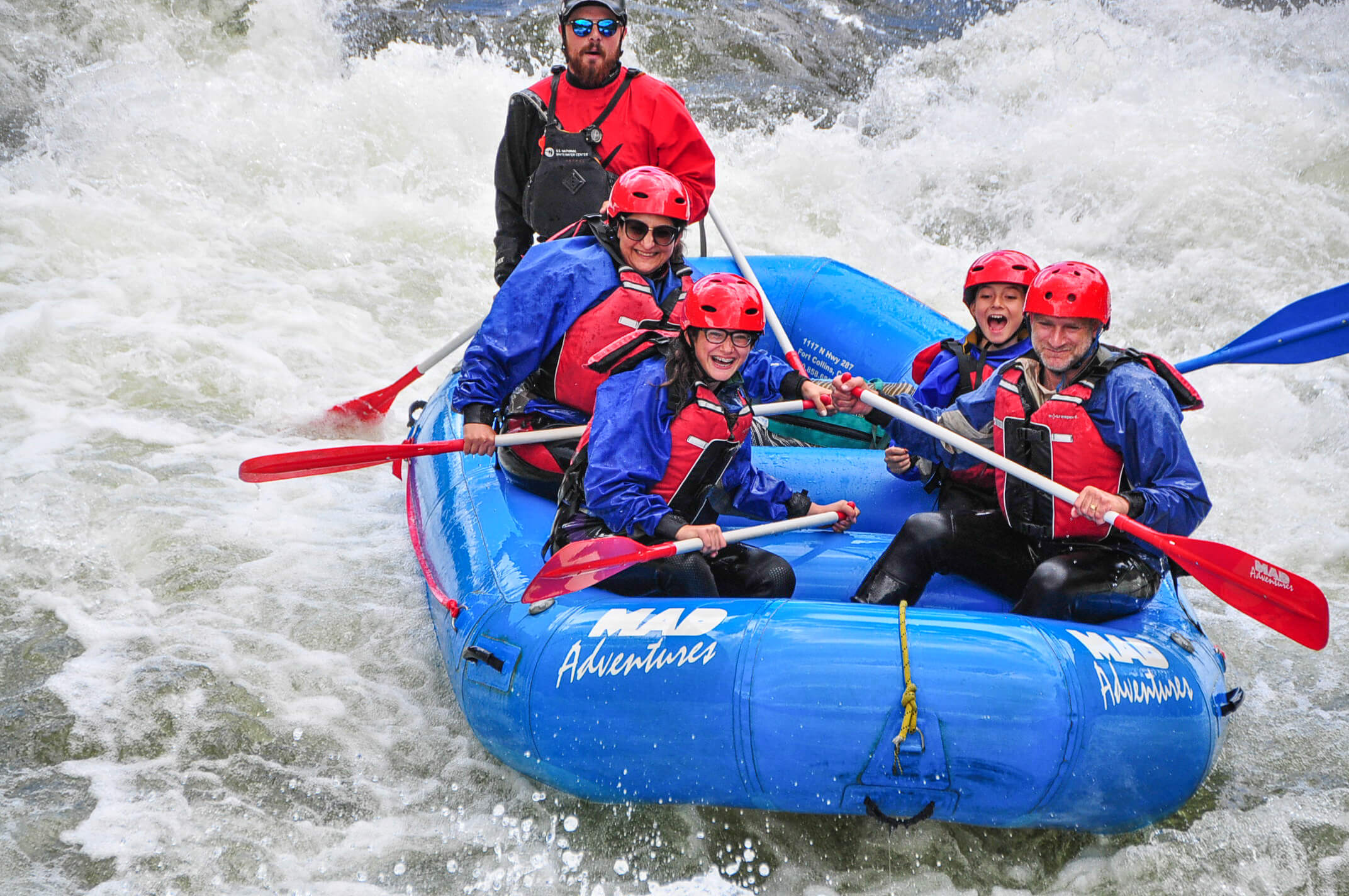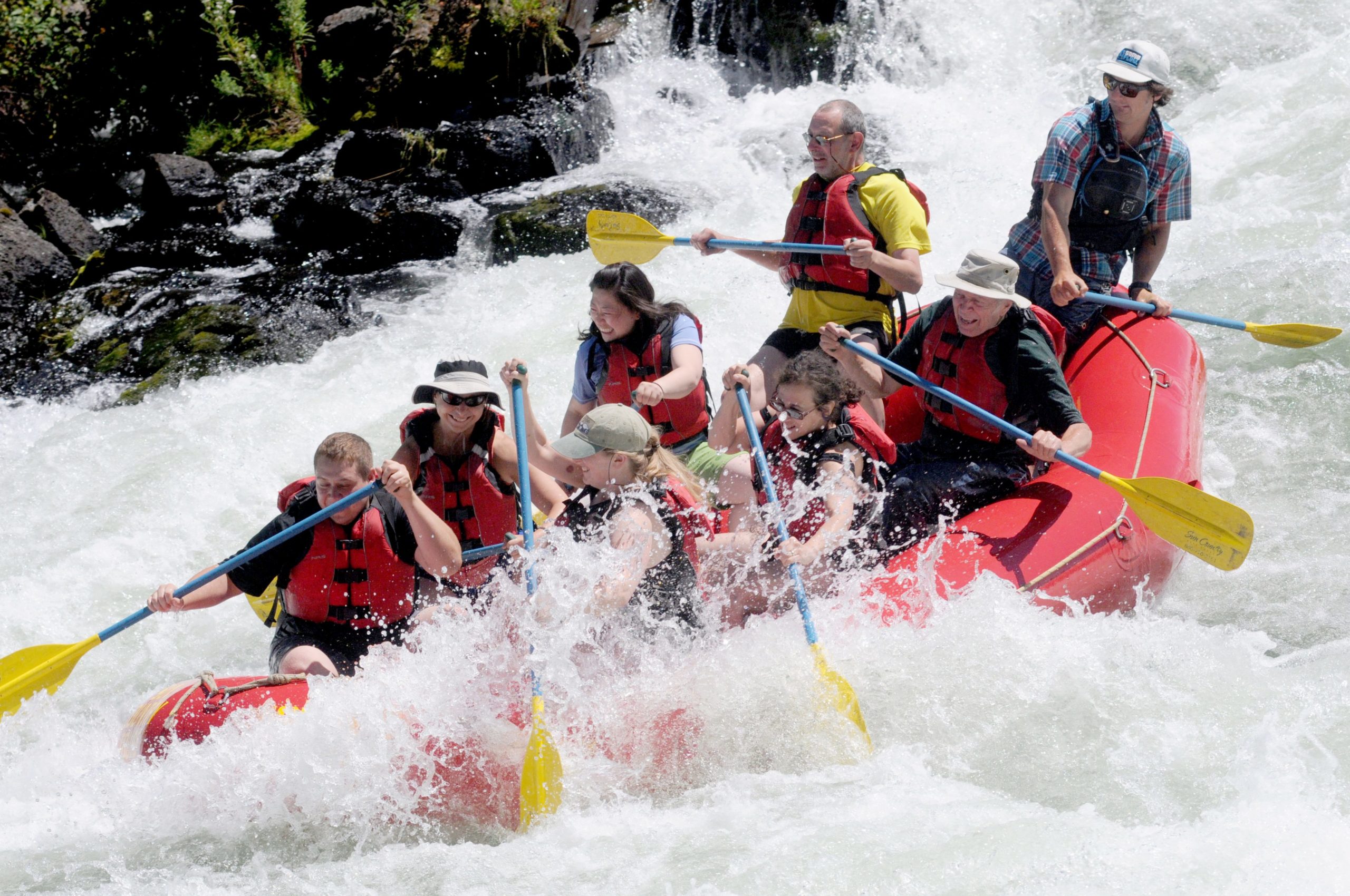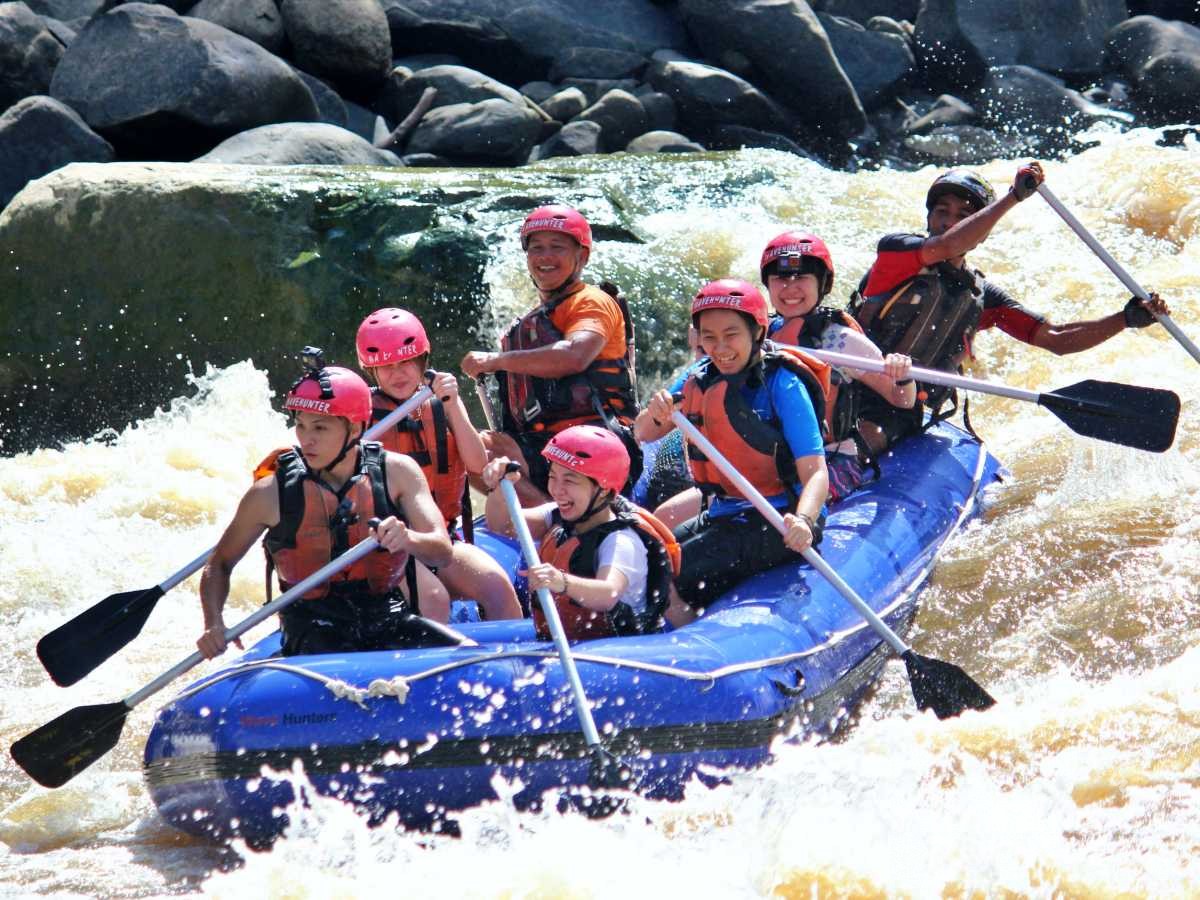The Ultimate Adventure: Water Rafting Tips and Techniques
Starting a water rafting experience is a thrilling experience that demands a mix of ability, preparation, and regard for nature's powerful forces (White Water Rafting Colorado). As the thrill of the river thrusts you onward, browsing with spins and transforms, the art of water rafting unveils itself as a test of both physical expertise and mental acuity. From picking the proper gear to understanding the nuances of paddling strategies, the journey down the river holds victories and challenges waiting to be overcome. But what absolutely distinguishes a beginner from a seasoned rafter exists not just in the proficiency of skills, however in the finesse with which one comes close to the unpredictable dance with the currents.
Important Equipment for Water Rafting
To make sure safety and convenience throughout water rafting trips, it is crucial to furnish oneself with the necessary gear customized to this adventurous task. The initial and most critical piece of devices is a well-fitted individual flotation protection tool (PFD) or life coat. This is non-negotiable for all rafters, as it gives buoyancy in instance of unintentional immersion in water. In addition, a tough safety helmet is important to shield versus head injuries, specifically in harsh waters or if shaken off the raft.
Furthermore, proper footwear is vital for maintaining excellent grip and protecting the feet from unsafe surface areas or sharp rocks. Neoprene booties or water shoes are recommended for this objective. It is likewise a good idea to use quick-drying clothes, such as a wetsuit or rash guard, to manage body temperature level and prevent hypothermia in cold water conditions.
Lastly, a reputable paddle is required for navigating with the water efficiently. It should be light-weight yet resilient to endure the rigors of rafting. By buying these essential pieces of gear, rafters can appreciate their experience on the water with confidence and satisfaction.
Choosing the Right Rafting Course
When planning a water rafting adventure, picking the suitable rafting route is vital for a enjoyable and safe experience. Factors such as the degree of difficulty, water problems, and the size of the route must all be taken into consideration before embarking on your trip.
First and primary, assess your group's skill degree and experience. Different rafting paths are classified based upon trouble degrees varying from Course I (simple) to Course VI (dangerous and very hard) It is necessary to select a route that aligns with the abilities of all participants to make sure everyone's safety and pleasure.
Additionally, consider the water conditions of the path. Some paths might have calm waters suitable for beginners, while others may have solid currents and tough rapids that call for advanced skills. Looking into the water levels and possible hazards of the path in advance can assist you make an educated choice.
Last but not least, take into consideration the length of the rafting path. Longer routes may require more time and endurance, so choose a course that fits within your group's duration and physical capacities. By meticulously picking the ideal rafting route, you can set yourself Our site up for a exhilarating and unforgettable journey on the water.
Safety Safety Measures on the Water
Thinking about the importance of choosing the ideal rafting course for a safe and delightful experience, it is vital to focus on safety and security precautions on the water to mitigate prospective threats and ensure a successful journey. Prior to embarking on a water rafting trip, ensure all participants wear correctly fitting personal flotation gadgets (PFDs) and safety helmets to secure against accidents. By adhering to these security preventative measures, you can enhance the total experience and decrease possible threats while water rafting.
Grasping Paddling Methods
Establishing efficiency in paddling methods is essential for navigating via differing water conditions and making sure a successful water rafting experience. White Water Rafting Colorado. Proper paddling not just aids in guiding the boating efficiently but additionally adds to the general coordination and synergy required for a secure and satisfying journey
One of the basic paddling methods is the forward stroke. This stroke involves dipping the paddle blade totally right into the water and pulling it back along with the plethora, giving propulsion and steering. The in reverse stroke, on the other hand, is critical for slowing or turning around down the boating. By understanding the forward and in reverse strokes, rafters can efficiently manage the rate and direction of the raft.

Tips for Handling Rapids Like a Pro
To stand out in browsing tough river problems, experienced water rafters apply their grasped paddling strategies with precision and skill when taking care of rapids like experienced specialists. When encountering rapids, it is critical to maintain a strong and collaborated paddling rhythm. This rhythm aids the boating keep its course and stability amidst the unstable waters. In addition, it is vital to expect the motions of the raft and adapt rapidly to altering conditions. Experienced rafters utilize their knowledge of river dynamics to proactively adjust their paddling technique, making certain efficient maneuvering through rapids.

Final Thought
In final thought, water rafting calls for necessary gear, mindful course choice, safety and security precautions, grasping paddling methods, and dealing with rapids with proficiency. By adhering to these techniques and tips, travelers can guarantee a effective and satisfying rafting experience on the water.

Considering the importance of selecting the right rafting path for a satisfying and safe experience, it is crucial to prioritize security preventative measures on the water to minimize prospective threats and make sure a successful journey. Ultimately, sharpening paddling techniques is key to a effective and awesome water rafting adventure.
In verdict, water rafting requires vital equipment, cautious course choice, safety and security precautions, understanding paddling methods, and taking care of rapids with competence.